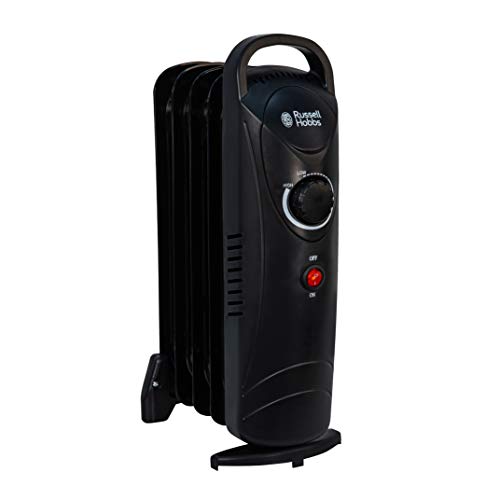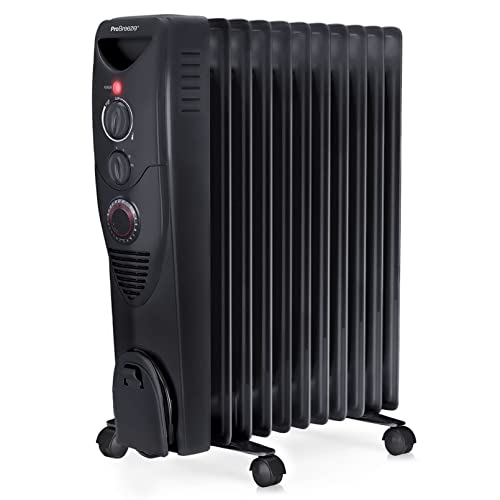How To Build A Successful Small Oil Radiator If You're Not Business-Sa…
페이지 정보
Delila 24-08-25 10:59 view55 Comment0관련링크
본문
 Why Choose a Small Oil Radiator?
Why Choose a Small Oil Radiator?Filled with thermal fluid and fitted with heating elements oil radiators provide long-lasting warmth by convection and radiation. These radiators are portable and allow you to heat only the space you require, thus reducing energy.
They are extremely energy efficient and require minimal maintenance. All that is required is just a few wipes with a damp cloth. They can be set on their side and still perform admirably.
Safety
As the name suggests oil radiator with thermostat radiators are a kind of portable heater that makes use of an internal reservoir of engine oil or mineral to heat a space. They look similar to traditional radiators however, they are smaller and less bulky. They can be easily moved around the room on their wheels or by an adjustable handle. They are connected to the household electricity via an ordinary wall plug. Many of these radiators are equipped with a a 24-hour timer to let you set your preferred start and end time for heating.
When you switch on the heater an electrical current flows through a coil metal resistive wire at the base of the radiator. This creates friction, which warms up the oil molecules. As the oil molecules expand, they push the colder oil towards the element, which is reheated. This process continues until the heater is on.
They should not be placed near water sources, like the sink or bath. They produce carbon monoxide that can be fatal if breathed in. It is also recommended to keep them away combustible fabrics, such as draperies and wallpaper.
Many people inquire whether or not oil-filled radiators are safe and, if so, for how long. They are certainly safer than any other type of heater. In contrast to electric and gas powered heating systems, which may cause carbon monoxide leaks or fire out if they're not properly maintained They make use of an internal reservoir of oil to keep the room warm.
They don't have heating elements exposed, which means they're not able to be ignited or ignite. There is no need to replenish the tank unless it is completely empty. However, it is essential to use a suitable extension lead, and never use one that's not rated for the demands of your heater. This will stop the wires from overheating and causing an injury.
The tip-over switch is a further safety feature. It will shut down the device in the event that the device is hit or tipped. This helps prevent serious injuries from being caused by accidents or deliberate mishaps.
Energy Efficiency
Oil radiators are an economical solution for heating that is energy efficient. By conserving heat and using thermostats to keep an ideal temperature, oil heaters use energy efficiently and offer long-lasting warmth without racking up your utility bill. While these radiators do consume electricity, they do so by using only sparingly and in an environmentally friendly way.
Oil-filled radiators are rated as having over 90 percent energy efficiency. This is because they convert every watt of electricity directly into thermal energy with minimal loss. This is more efficient than electric convection heaters which use fans and air convection to move heat throughout the room. This kind of radiator makes use of thermostats to keep the temperature at a constant level and switch itself off when the room is not being used, which can help to reduce the amount of electricity used.
The amount of energy used by a heater depends on many factors, like the wattage of the radiator and the size of the area it is designed to heat. Generally, the greater the wattage, more quickly the heater heats up and can be able to heat an area larger. However this also means that it will consume more power than a lower-wattage model.
The amount of energy used is also influenced by other factors, such as the size of the room as well as its insulation. If a room is not properly insulated it will require more heat required to be comfortable. This will result in the use of more electricity. In addition, certain thermostat settings could result in the heating being turned off and on more frequently than it is required to keep an appropriate temperature.
If you adhere to a few simple tips to save energy, you can reduce the amount of energy your radiator uses. This includes turning off your radiator while you are not in the room. You can also alter the thermostat to a higher level and make sure that all drafts are shut.
Durability
Oil radiators are excellent because they retain heat very well. This means that even after you've shut off the power, they will keep a room warm for many hours. This means they don't consume more energy than is necessary. This is why oil radiators are generally cheaper than heaters powered by fans.
It could also mean that they may take longer to reach their maximum temperature, and are slow to warm up overall. This is why it's essential to take the time to look into all of your options before purchasing and taking into consideration all the variables that influence which heater is best suited to your requirements.
Another factor to bear in mind is the weight and size of a portable oil radiator. If you're looking for something that's easily transportable, a lightweight model is ideal and for those with vision or mobility issues, it's important to consider the ease with which the heater can be utilized.
If you opt for one with a digital control panel, it may be a challenge for people who have mobility or vision issues to use. Models with a traditional off/on switch, a dial clearly marked with "min" and "max" and a dial that has an easy switch for on and off are ideal for people who have difficulty operating complex electronic devices.
Although it is rare for a small radiator to leak oil, the possibility is always present and should be considered prior to purchasing. These heaters can cause significant damage if leaks aren't addressed promptly. They can also be a danger to your health if they infiltrate your airways.
One way to mitigate this is to make sure that the radiator is in a upright position always, as this will prevent any potential damage from happening and will ensure that it operates correctly. You can also choose a radiator that has an air-ventilated system that circulates the oil even when used on its side.
Easy Maintenance
If you're in the market for portable oil filled radiators heaters that provide stylish efficient heating for your home, then an oil-filled radiator is a good option to consider. These heaters are among the most sought-after in our online selection. They are great to heat small rooms or even individual rooms within the home. They are also among the most cost-effective choices in our electric heating review.
Oil-filled radiators are heaters that are made of mineral oil. They are heated by an electric heating element. The oil is heated to the point that it can heat the room for a long time, using less energy. These heaters tend to look a bit like central heating radiators due to their fins, but they are smaller and lighter, making them more mobile. These heaters are usually connected to the electricity of your home through a standard plug. They also come with wheels or carrying handles for easy movement.
In terms of maintenance, these radiators need very little in the way of repairs. If they do leak, do not attempt to fill them yourself. The oil inside can be under pressure and cause an ignition risk. If you suspect that your heater may be leaking, you should contact the manufacturer immediately.
The De'Longhi Oil Filled Radiator Heater is one of the cheapest to run in our roundup, but it only produces a small amount of heat and may not be suitable for large rooms. The more powerful models we have included in our round-up such as the De'Longhi Dragon 4 2500W Oil Filled Radiator and the VonHaus 11 Fin 2500W oil radiator portable Filled Radiator can produce much more heat for the same amount of power and are more suitable for homes with large spaces.
 It's also important to look at the size of the radiator before purchasing, especially if you have vision issues or mobility issues. Many of the models that we've reviewed have a digital display which can be difficult for people who have low vision to read. VonHaus and De'Longhi come with large controls with clear markings, which means they should be easy for anyone with this type of difficulty to use.
It's also important to look at the size of the radiator before purchasing, especially if you have vision issues or mobility issues. Many of the models that we've reviewed have a digital display which can be difficult for people who have low vision to read. VonHaus and De'Longhi come with large controls with clear markings, which means they should be easy for anyone with this type of difficulty to use.댓글목록
등록된 댓글이 없습니다.